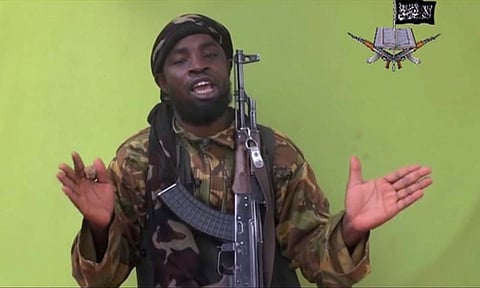Boko Haram is no ‘global terror’ group
There is always the question of playing into the hands of this militant outfit

Standing among the ruins of her burnt-out school, a 14-year-old Nigerian girl in the north-eastern city of Maiduguri told me that she was not afraid. “There’s nothing left for them to attack,” she said, as students in yellow veils and green uniforms scampered past the scorched and crumbling walls.
The Islamist insurgency by the group that has become known as Boko Haram seemed especially grim back then, a relentless series of attacks leaving scores of civilians dead, mostly unnoticed by the rest of the world. Two years on, it has taken the kidnapping of more than 250 girls to draw global attention to the violence that has for years shaken parts of Nigeria.
But this crisis provides an opportunity to look more deeply at the causes of the insurgency. The world must keep in mind that it is a problem to a large degree born and bred in Nigeria. Ultimately, it must be resolved by Nigerians themselves.
The response to the kidnappings by the government and security forces has followed a pattern familiar to Nigerians. President Goodluck Jonathan promises results and the military pledges to do its best, but often it seems very little comes of it. Average Nigerians then return to the daily struggle to survive in a country where most live on less than a $1 (Dh3.67) a day, despite the nation’s massive oil wealth.
Many of them have lost any faith in their institutions and their leaders, with corruption and mismanagement on a scale so large it strains belief.
Apart from Boko Haram’s violence, the security forces have been accused of terrifying abuses, including the killing of civilians, the burning of homes and summary executions. It is within this context that Boko Haram took root and grew into the monster it is today.
The group began as a Salafist sect in north-eastern Nigeria led by a charismatic but crudely educated preacher named Mohammad Yousuf, who was killed in 2009. He felt that British colonialism and the Nigerian state had imposed an un-Islamic way of life on Muslims. This led him to oppose western-style education, which is how the group came to be known as ‘Boko Haram’.
‘Global terrorism’
After Yousuf’s death, his deputy, Abu Bakar Shekau, took over and its attacks grew more deadly and sophisticated. It has formed links with Al Qaida in the Islamic Maghreb, probably involving training, financing and weapons procurement. However, the extent of such cooperation is unclear and lumping Boko Haram in with some vague notion of “global terrorism” is misguided and unhelpful. Its aims, as much as they can be deciphered from a factionalised group without a clear structure, remain largely local: The creation of an Islamic state and release of detained members.
These factors complicate the question of what the rest of the world should do to help. Foreign advisers can provide useful intelligence and assist with hostage negotiations, but working closely with a Nigerian military accused of serious human rights abuses presents its own dangers.
Then again, there is the question of further raising Boko Haram’s profile and playing into the hands of some elements of the group: Shekau will probably be delighted to know that he has drawn the attention of Barack and Michelle Obama.
Perhaps if any good can come from the kidnappings, it will be that Nigeria’s leaders will be pressured into looking harder at what years of bad governance have wrought.
In the short term, the world should certainly do what it can to help free the girls captured by criminals with a warped view of Islam. However, the larger problem will remain if Nigeria does not begin to provide its people with the government they deserve.
— Guardian News & Media Ltd
Mike Smith, a former Lagos bureau chief for Agence France-Presse, is the author of Boko Haram: Inside Nigeria’s Unholy War, due to be published next year.


